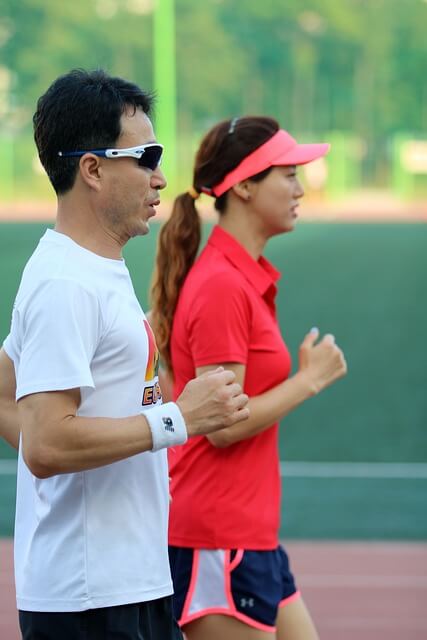Participating in a marathon requires careful consideration of various factors, including proper footwear, clothing, and accessories. One question that often arises is whether runners should wear glasses during a marathon. While it’s not a requirement, this article will delve into the potential benefits of wearing running glasses and provide insights to help runners make an informed decision. We will explore the importance of eye protection, the role of sunglasses in reducing glare, considerations for prescription eyewear, and the overall comfort and fit of running glasses.
Eye Protection and Safety
During a marathon, runners can face various environmental factors that may pose a risk to their eyes. Dust, wind, insects, and debris along the race route can potentially cause discomfort or injury. Wearing running glasses provides a protective barrier, shielding the eyes from these potential hazards. In trail races or areas with dense vegetation, the risk of encountering small branches or leaves is higher, making eye protection even more crucial. By wearing running glasses, runners can reduce the likelihood of eye irritation or injury, ensuring a safer and more comfortable race experience
Reducing Glare and Enhancing Visibility
When running in bright sunlight, glare can significantly impact visibility and strain the eyes. Wearing sunglasses or tinted running glasses can help alleviate these issues by reducing the amount of sunlight reaching the eyes. This reduces eye strain, allowing runners to maintain focus on the race ahead. Additionally, sunglasses with polarized lenses are particularly effective at eliminating glare from reflective surfaces like water or shiny road surfaces. By improving visibility, runners can better navigate their surroundings and potential obstacles, improving their overall performance and reducing the risk of accidents.
Prescription Needs and Clear Vision
Many runners require prescription glasses or contact lenses to achieve optimal vision. During a marathon, it’s crucial to maintain a clear vision to avoid potential hazards and navigate the course effectively. For individuals with prescription eyewear, there are running glasses available that can incorporate their prescription lenses. These specialized glasses provide the necessary vision correction while offering the benefits of eye protection and glare reduction. By opting for prescription running glasses, runners can ensure clear and comfortable vision throughout the entire race.
Comfort and Fit
Comfort is paramount during a marathon, and this includes the accessories runners choose to wear. Ill-fitting glasses can be a source of distraction or discomfort, which can negatively impact performance. It’s essential to select running glasses that fit securely and comfortably on the face. Look for lightweight materials, adjustable nose pads, and non-slip temple grips to ensure a snug fit that remains stable during vigorous movement. Trying on different styles and brands to find the most suitable option is recommended.
Conclusion
While wearing running glasses during a marathon is not mandatory, they offer several benefits for runners. They provide eye protection against dust, wind, insects, and debris, reducing the risk of eye irritation or injury. Running glasses with tinted or polarized lenses also help reduce glare and improve visibility, enhancing performance and safety. For those with prescription needs, specialized running glasses can incorporate their corrective lenses. Ultimately, the decision to wear running glasses comes down to personal preference and consideration of the race environment. By choosing the right running glasses that offer comfort, protection, and visibility, runners can optimize their marathon experience.





